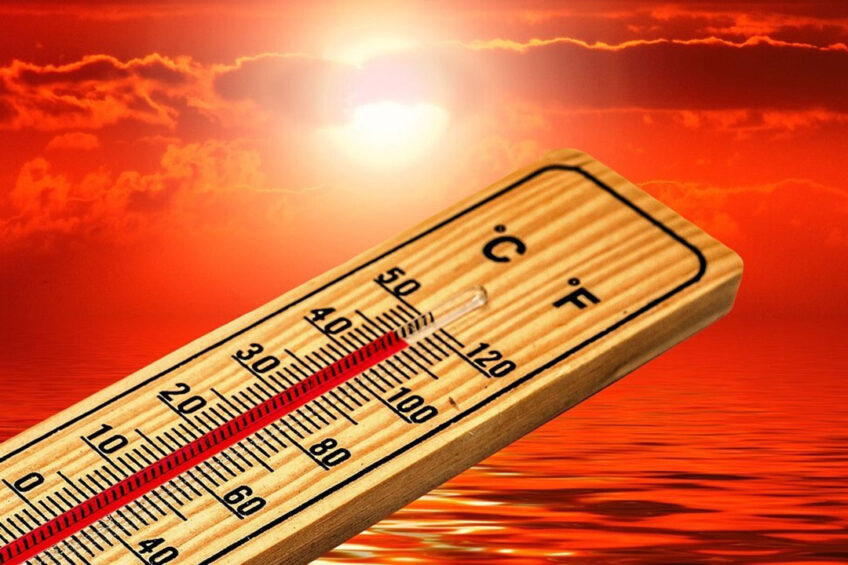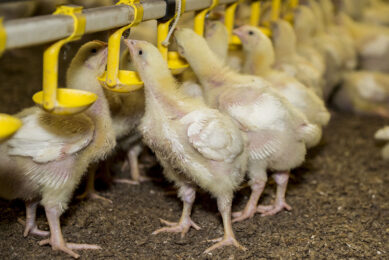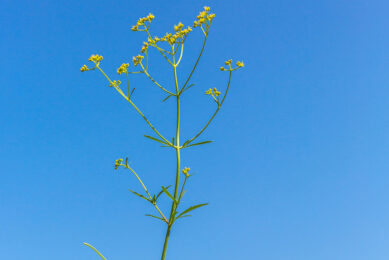Heat wave kills 400,000 chickens in Uruguay

A heatwave killed at least 400,000 chickens in Uruguay in mid-January, as confirmed by the Southern Association of Poultry Producers (Apas).
According to Joaquim Fernández, president of Apas, this represents between 10% and 20% of Uruguay´s production. During a television interview on Subrayado, Fernández said he had not seen anything like this in over 43 years in the sector.
Using nature to tackle heat stress
The Dutch initiative Trees for Cows has planted over 114,000 trees since the year 2000. Their long term goal is to create many cool and shady places in and along pastures for dairy cows to find shade during extreme temperatures. The initiative urges livestock farmers to start planting trees now to profit from them later.
Tips and tricks for feeding during heat stress
Poultry veterinarian Gerwin Bouwhuis gives tips and tricks on how to prevent heat stress in broilers with a proper feed regime, smart water line height and the right additives. Read more…
Highest temperature ever
The country recorded the highest temperature ever: 44°C in the city of Florida, on 14 January, according to the Uruguayan Institute of Meteorology (Inumet). This record matched Paysandú’s temperature in January 1943.
Many other cities recorded temperatures above 40ºC, including the Brazilian state of Rio Grande do Sul. In another affected Uruguayan municipality, Canelones, the thermal temperatures at ground level reached 57°C, noticed the local newspaper El Observador.
Fernández explained that high temperatures can kill chickens as they do not have sweat glands and therefore battle to control their body temperature. As a result, the birds find it difficult to breathe and can die.
Managing heat stress in poultry
Rising global temperatures and the undeniable fact. Fortunately, innovative plant-based nutritional solutions now provide the opportunity to stabilise broiler and layer performance during hot weather. Read more…
The ideal temperature and humidity for poultry
The literature says the ideal temperature inside aviaries for adult birds should be maintained between 15 and 28ºC, with the relative air humidity varying from 40 to 80%.
Losses due to heat in South America are not unprecedented. In 2012, 200,000 birds had the same destiny in Uruguay. Furthermore, a historic heatwave with temperatures above 41ºC killed up to a million chickens in the city of Bastos, in São Paulo State, Brazil, in October 2020.
How to prevent heat stress?
With a core temperature of 41°C, one would think that broilers can withstand heat pretty well. Unfortunately heat stress is a serious problem. Read more…
Losses for poultry producers
According to the president of Apas, the financial loss for producers might reach over US$1 million. Despite that, there should be no shortages and egg prices valuation will be minimal, he declared.
One of the affected producers, Andrea Vidal, said she lost 25% of her animals. She reports that the bodies had to be collected manually because birds decompose very quickly.
The Ministry of Livestock, Agriculture and Fisheries of Uruguay declared Poultry Climatic Emergence that previews financial assistance for bird farmers. The same support is already granted to beef and beekeepers producers due to the heat.
The Agricultural Emergency Zone in the country covers 16 regions and about 10 million hectares affected by the lack of rain.












